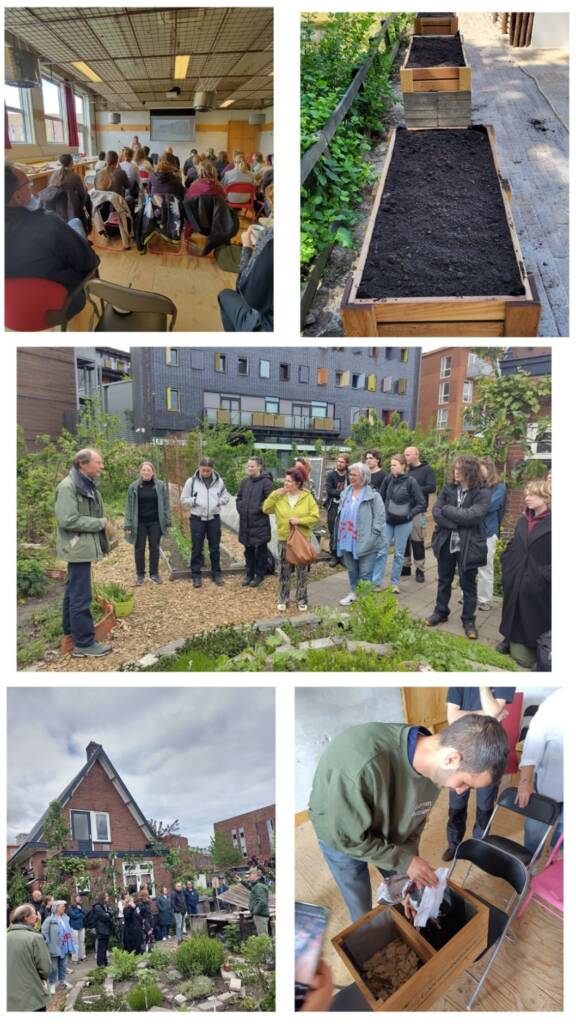On a sunny spring afternoon, the city of Apeldoorn came alive with circular energy and community spirit as it hosted its final BIOLOC event — a vibrant Quadruple Helix Workshop that brought together public officials, students, community gardeners, and sustainability experts. Held across two inspiring locations — the Ambachtschool and the Moestuin Havenpark — the event marked the culmination of two years of local action for a more inclusive and circular bioeconomy.
Collaboration in Action
The Apeldoorn initiative centered around three community gardens — Sadika, Da Capo, and Havenpark — each working with vulnerable groups such as migrant women, the elderly, and people in reintegration programs. The gardens were more than just growing spaces: they were social hubs where skills blossomed alongside vegetables.
Support from Wageningen University & Research, ROC Aventus vocational students, and the Municipality of Apeldoorn strengthened these community efforts with research, hands-on construction, and sustainable materials.
Highlights from the Event
The workshop agenda offered a deep dive into local successes:
-
Welcome & Presentations: Inge Smolders of the Municipality opened the event with reflections on Apeldoorn’s journey in BIOLOC.
-
Circular Raised Beds: Koen van Oort from ROC Aventus showcased student-built garden structures made from reused local materials.
-
Urban Circularity: Sonja Dijkman, Circularity Advisor for the city, presented how municipal waste streams (tiles, compost, woodchips) are repurposed via the city’s Circular Depot.
-
Worm Hotels: Emiel de Kruijff demonstrated compact composting systems now used in all three gardens, turning kitchen scraps into fertile soil.
A guided tour of the Moestuin Havenpark allowed participants to see these circular solutions in action — from raised beds to the thriving compost ecosystem.
Real Impact, Local Roots
The event gathered around 40 participants, including city officials, teachers, local NGOs like Stimenz, kitchen garden volunteers, and enthusiastic students. This diverse mix reflected the Quadruple Helix model — uniting public sector, academia, industry, and civil society for systemic innovation.
More than just celebrating results, the gathering was a moment to reflect on the social impact of Apeldoorn’s efforts:
-
The loss of a garden leader at Havenpark showed the vulnerability of volunteer-led initiatives — but also their resilience when backed by committed partners like Stimenz.
-
The relocation of Sadika’s garden to a city petting zoo highlighted the fragility of land access for community spaces — and the importance of municipal flexibility and care.
-
The launch of a new initiative, Stichting Ontkiemen, emerged from the Da Capo garden, helping people with low incomes create greener homes — an inspiring ripple effect of the BIOLOC mission.
Looking Forward
Though the BIOLOC project phase has ended, the seeds planted in Apeldoorn are growing strong. The municipality has committed to:
-
Offering training workshops to volunteers and coordinators on leadership and fundraising.
-
Supporting communication tools like flyers and social media to grow community engagement.
-
Mapping and connecting local green initiatives through digital and physical networks.
By blending circular thinking, community empowerment, and inclusive education, Apeldoorn has built a local model of urban gardening that serves both people and the planet.
See More





